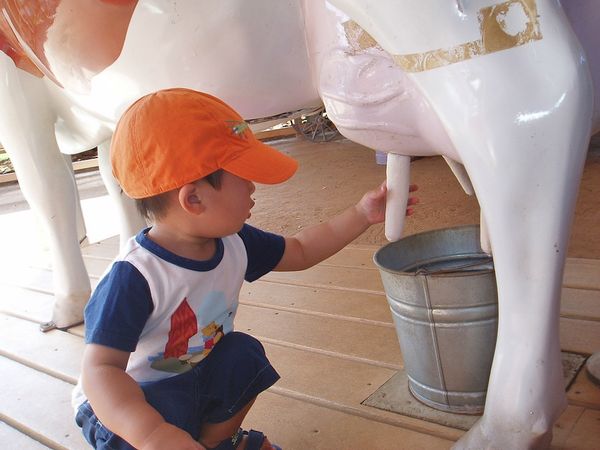Have you ever been told any of these phrases?
"I know you'll always take care of me."
"You can handle anything I throw at you."
"You're so good at fixing my problems."
Or, have you ever thought anything like this?
"I wish someone would take care of me for once."
"This friendship feels a little one-sided."
"I don't know how to say it nicely, but this friend is too clingy."
These are common experiences for those who fail to establish boundaries in their relationships. On the other end of the spectrum are those who fail to respect boundaries; these individuals often feel as though they are pushed away or rejected by friends. They may be labeled as needy, clingy or overbearing. I'm here to address both camps, and talk about the way boundaries have improved—and even saved—my own relationships.
First, let me define what I mean by boundaries. While things like personal space and privacy are important, relational boundaries focus more on establishing limits and expectations. Sports are a good analogy; in any pickup game of soccer or football, the first step is to set the boundary lines of the field. This allows all players to operate on a shared set of rules, and prevents conflict later. In relationships, boundaries protect each person's independence and freedom; it allows a shared sense of what "good friendship" looks like and removes some of the pressure that can occur when expectations aren't clear.
I also want to emphasize that boundaries aren't the same as barriers. I know a lot of incredibly relational, giving people who would feel selfish saying they have limits in friendship. The phrases I mentioned above would feel like compliments to them. Unfortunately, relationships without limits usually mutate into wearisome burdens. It is incredibly hard to have equal give and take in a relationship without boundaries. Going back to the sports analogy, if two teams attempt to play soccer without a shared definition of the field or rules of play, the match would quickly digress into arguments about perceived cheating or unfairness. A similar effect often occurs in relationships because no two people are exactly the same.
Many relationships begin to feel one-sided because one person has unclear boundaries, which the other person fails to see or acknowledge. In this scenario, the first person may feel overwhelmed and try to back away from the friendship, while the second might react to the feeling of distance by overstepping boundaries even more. At different times in my life, I've been both people - and neither position is enjoyable.
Some of the most common areas where relationships lack boundaries include time, social/ emotional energy, and privacy. An individual with a full load of classes, a part time job, and extracurriculars needs to set clear boundaries with friends, or they will lose necessary time to sleep and rest. Friendships between introverts and extroverts, while completely possible, can suffer if boundaries aren't set regarding the amount of social energy available to each person.Many friendships have also broken apart due to a lack of trust, merely because neither party established what information was acceptable to share with others.
But how do you possibly establish boundaries without making things seem formal and stiff? How can boundaries be brought into relationships effectively, if they have never been established before? Here are a few tips on developing and protecting your boundaries, as well as helping others establish their own.
1. Get to know yourself—and your friends.
What do you want in friendships? How much energy do you like to spend with people? How might someone's words or actions make you anxious, upset, or hurt?Without a knowledge of your own needs, limitations, and expectations, you can't possibly have good boundaries. After all, boundaries must be set intentionally, and vary based on each relationship. I learned a lot about myself freshman and sophomore year of college, particularly that my sense of connection with friends and family is based on intentional one-on-one time, whereas time with groups drains my energy and sense of closeness. I was able to use this knowledge to make better connections with the people I cared about.
You may find that some self-reflection (I recommend the Enneagram as a tool for this, but you can also manage it alone) helps you discover why certain relationships have been draining you. In this process, I encourage you to be more mindful about the boundaries your friends and family may have, or may want to establish.
2. Try replacing your expectations and assumptions with conversations.
Okay, we all make assumptions in relationships. We assume that a brief text message meant the person was upset. We assume that we are supposed to fix someone's personal problems, or give them advice. These assumptions are usually based off of some observation or history, but that doesn't make them valid. Yet you can use those assumptions in a positive way: use them to start conversations.
If your assumption is that a friend is upset about the amount of time you spend with them, you could transform that thought into the question "Hey, how much time are you hoping to have with me this week? How do you feel about the time we spend hanging out?" It may feel like an odd question to ask, but the momentary weirdness will be worth the information you gain.
3. Don't be afraid of "growing pains."
So you try establishing some new boundaries in a few of your relationships, and are met with resistance: maybe someone says that you're being distant, or acting weird. Maybe a friend gets hurt because you stop carrying their emotional baggage and encourage them to find a different solution than unloading on you. Or, maybe you are trying to be more aware of other people's boundaries: you stop bugging a friend about hanging out, and are waiting nervously for them to initiate with you. This is the moment when that fledgling attempt at establishing boundaries is at greatest risk. Habits are hard to break; new habits are hard to make.
The phase of "growing pains" where relationships have to adjust to new boundaries is difficult, because you are essentially redefining normal. But take courage in knowing that once the readjustment is over, your new normal will be more fulfilling and more sustainable.
I have spent the last two weeks focusing on relationship building skills, and this will be my last article on the subject for a while (my other articles are here and here). If you have been following this series, I encourage you to keep going. I have only brushed the surface of ways that relationships can be improved, and find myself still trying to be a better listener, conversationalist, and boundary-protector. But it takes very little effort to see a huge improvement, and there are few things as validating as revitalizing a relationship.



















